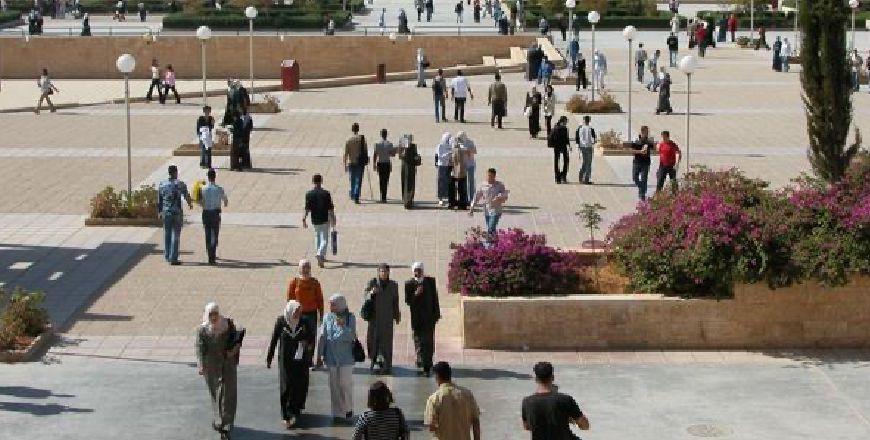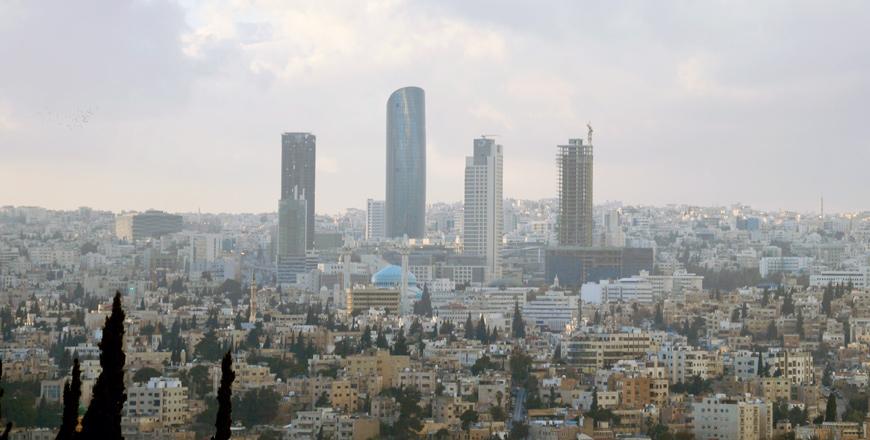You are here
Gov’t draws up 3-stage plan to bail out economy
By JT - Apr 03,2021 - Last updated at Apr 04,2021

JT file photo
AMMAN — The Economic and Social Council on Saturday revealed additional details pertaining to the economic recovery plan submitted to Prime Minister and Minister of Defence Bisher Al Khasawneh a month ago, the Jordan News Agency, Petra, reported.
The three-stage plan was designed to bail the national economy out of the repercussions of the pandemic, aiming to achieve integration among all sectors and shore up hard-hit sectors according to priority.
Support provided within the framework of the plan ranged from immediate support to labour and economic sectors, complementary support for various sectors to enable the rapid recovery of the economy, and integrated support to vital sectors that paves paths for sustainable economic growth.
Each phase included a number of programmes and initiatives that will be launched together each time in the form of packages.
Each package would be implemented over a period of two months, provided that the impact is measured monthly, and achievement rates are determined.
Each package aims at the continuation of business activities in various sectors, mainly targeting the employer and workers, with the aim of increasing the activity of the facility or institution or company and maintaining its existence, preserving employment, and the possibility of expanding its activity, according to Petra.
It also aims at supporting the private sector and stimulating investment, so that it strikes a balance between safeguarding public health and sustaining economy, through packages that focus on reducing operational costs for employers, enhancing the flexibility of transition in the labour market, and investing in the human capital component.
The action plan will also target enhancing exports, opening new markets, funding, granting facilities, stimulating tourism and boosting innovation and micro, small and medium projects, Petra reported.
In order to facilitate the implementation of the economic recovery plan, the plan necessitated the formation of a national team or a supreme steering committee headed by the prime minister, with the membership of stakeholders.
According to the plan, a proposed alternative to creating the committee would be the activation of the National Policy Council, and the formation of executive groups for all sectors to oversee, follow-up and evaluate the implementation of programmes.
The plan included the extension of the legal deadline for the period of disclosing annual financial reports for the year 2020 as well as postponing social security registrations for the private sector.
Social security programmes launched during the pandemic will still be in effect, Petra reported.
It also involves reducing the first installments for beneficiaries of projects of the Housing and Urban Development Corporation to 10 per cent of the value of the proposed project, with an interest of 3 per cent instead of 6 per cent until the end of June 2021.
In regard to Article 11 of the Income Tax Law No. 38 of 2018 and its amendments, taxpayers will benefit from a 5 per cent reduction on income tax returns filed in 2020.
On another note, owners and workers at the tourism sector will still benefit from exemptions of license renewal fees for the year 2020.
Rent fees would drop by 80 per cent for institutions located at free and developmental zones.
Start-up companies would also be supported through covering their offices’ rental costs for a minimum of three months.
The plan also includes a number of initiatives and facilities in a variety of sectors.
Related Articles
AMMAN — The World Bank has approved $112 million in financing for the Jordan Support to Private Sector Employment and Skills Project, a
AMMAN — Approved on Saturday by the World Bank Group Board of Executive Directors, the Performance and Learning Review (PLR) summarises the
AMMAN — The Ministry of Digital Economy and Entrepreneurship announced on Wednesday that so far, nearly 900,000 Jordanians have activated th
















